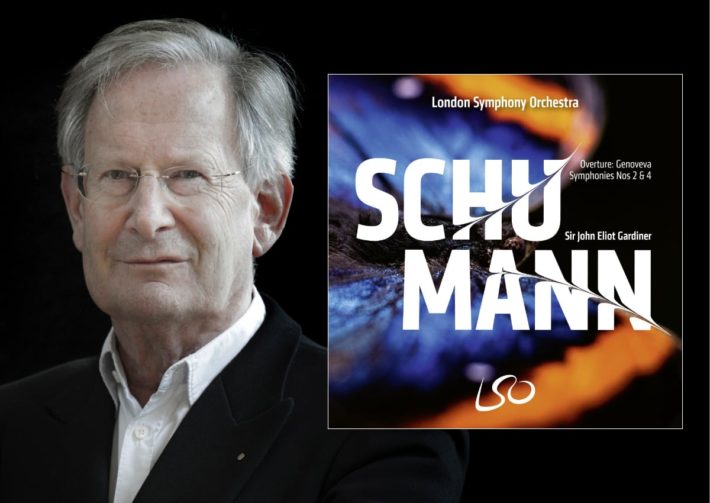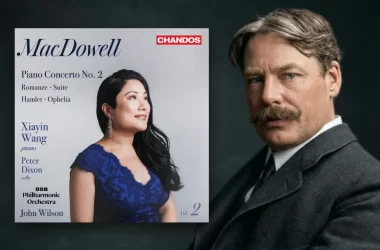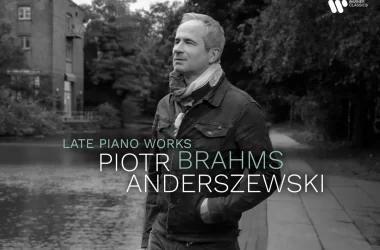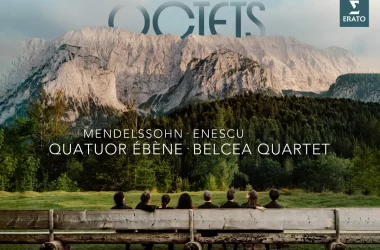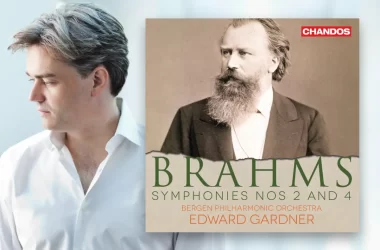Sir John Eliot Gardiner is no stranger to the mid-19th century romantic symphony. Having completed a commendable cycle of Mendelssohn symphonies with the London Symphony Orchestra, he now turns his attention to those of Schumann. This is not Gardiner’s first cycle; it has been over 20 years since his radical and acclaimed series with the Orchestre Révolutionnaire et Romantique.
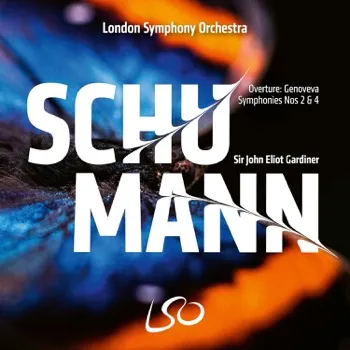
This latest release on the LSO Live label programs Schumann’s symphonies 2 and 4 (1841 version) along with the Genoveva overture. Gardiner’s conducting brings freshness, vivaciousness and clarity to these works. All too often the idea that Schumann was a poor orchestrator is mooted, but these latest renditions present no evidence for this. The textures heard on both Symphonies are clean and transparent, the result of having a conductor with deep affinity and understanding of this period.
Gardiner consistently pays careful attention to observe Schumann’s markings, executing them diligently. The phrasing throughout is meticulously detailed in all the parts; no detail is overlooked. In the opening movement of the Fourth Symphony for instance, the cello and bass parts have the same degree of shaping as the violins and violas. Whilst in his earlier cycle, the detail is evident, it doesn’t have the same expressive variety, the strings lacking the same undulation and the woodwinds lines are less definitively articulated.
There are some consistencies in tempo between the alternative versions of the two symphonies. The initial two movements of the fourth symphony match almost identically in both recordings, however the general feeling in the earlier cycle is slightly more luminous. The scherzo is marginally faster in the ORR recording which suits the period string timbre; the slower LSO version captures the same vivacity but allows for the bloom of the string sound. The LSO finale is slightly quicker with a hint of rubato, which intensifies the impact of the buoyant and animated climax.
Again, in the second symphony there is a consistency of approach overall with parallels between the two recordings; only one movement diverges from Gardiner’s ORR rendition, the slow third movement — Adagio Espressivo. Slower and more emotionally intense, it has moments of tenderness especially in the woodwind solos, whilst the sprightlier London interpretation, despite its beautifully shaped phrasing, lacks the same muted colors.
Period Understanding
The London Symphony Orchestra’s sound is rich and sonorous throughout. Gardiner brings his period understanding to the orchestral palette. Suitably chosen sticks on timpani bring an appropriate timbre, and vibrato-less strings give a sense of mid-19th-century practice. The brass, particularly in the second symphony, has clarity, cutting through the textures when necessary.
The recordings — made live in London’s Barbican Hall on March 2018, are a credit to the LSO Live engineers. They are clearly well-practiced in recording in this less than ideal acoustics, and the capture is excellent. Mastering gives a sense of perspective which is intrinsic to the music and enhances the acoustics. Woodwind and brass are placed appropriately and there is a wide panorama to the strings, giving a wide sense of breadth. Audience noise is negligible.
Christian Thielemann with Staatskapelle Dresden takes a more leisurely approach, his broader tempos thicken the orchestral textures, feeling denser they lack the vigor of Gardiner. Robin Ticciati’s second symphony with the Scottish Chamber Orchestra and Sir Simon Rattle’s Berlin Philharmonic have similar tempo choices to Gardiner. Nézet-Séguin is more risk-taking in both works, finding poetry, the second much brisker and fourth more expansive, with the Chamber Orchestra of Europe are on fine form.
An exciting and commendable release, a worthy and intriguing alternative to Gardiner’s earlier recordings of these two symphonies. The polished performance of the overture to Genoveva opens this album stylishly. Gardiner is at his most informed here, insightful and intuitive, skilfully tempering his interpretations to match the sound and strengths of the LSO. His previous cycle with ORR is good, but here Gardiner excels himself while fine-tuning his interpretative prowess.
Schumann – Symphonies No. 2, 4, Genoveva Overture
London Symphony Orchestra
John Eliot Gardiner – Conductor
LSO Live, Hybryd SACD LSO0818


